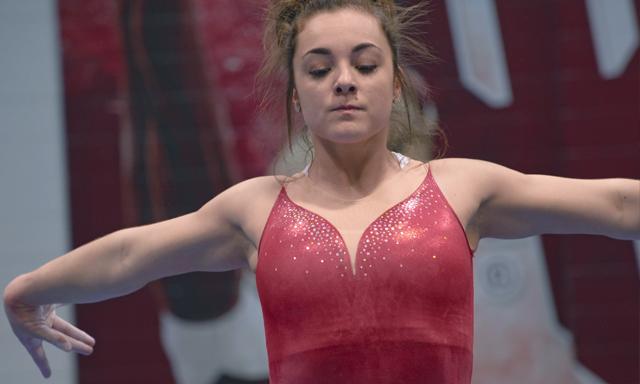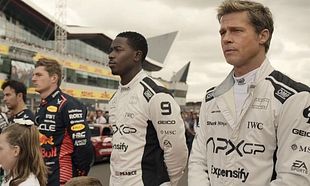Girls eager to enter the world of elite competitive gymnastics have to start training from a young age. Often this is as early as pre-school or junior high school. At that age, they are extremely vulnerable. Unfortunately, there are many who would take advantage of them. Aside from the pressures of maintaining a certain weight, worse still is the emotional, physical and sexual abuse. One woman confesses abusers are "everywhere" where another says "cruelty was the accepted methodology" of coaches. In 'Athlete A', 'An Inconvenient Sequel' directors Bonni Cohen and Jon Shenk expose how the industry was rocked by brave whistle blowers. The feature also follows the IndyStar reporters who exposed how far the USA Gymnastics organisation's cover-up went.
'Athlete A' comes with a warning about child abuse, and it's right to be included. The subject matter is often disturbing. What quickly unravels is that there was an absence of accountability and taking responsibility from the higher ups in gymnastics. Gym owners who are informed of abuse don't turn over reports from local gymnasts, dismissing them as hearsay. As abuse files against coaches are stuffed away, they go on to molest other children. Eventually it emerges that a doctor named Larry Nassar was abusing child gymnasts. As a prominent member of the community and the Olympic team's doctor for almost three decades, it is terrifying to think of the damage he did in that time. We see videos of him being kind, gentle and amiable, particularly compared to the harsh coaches. Later, it emerges he abused over a hundred girls and young women.
What's most astounding and appalling of all is the cover-up by the USA Gymnastics organisation. They were the ones held responsible with reporting abuse but instead of handing over information to the authorities, did their own "investigations". We learn the historical development of the sport may have contributed to this inhumanity. Following Romanian gymnast Nadia Comăneci's huge success at the 1976 Summer Olympics in Montreal, girls began replacing women in the competition. By the 1980s, aided by a stricter but successful training regiment introduced by defector coaches Bela and Martha Karolyi, gymnastics in America became a hugely popular and wealthy industry. As it became more branded, the powers that be cared less about the actual girls who were competing.
The blurring of the line between tough coaching and child abuse is scrutinised, and through interviews with the likes of Maggie Nichols (the interviews with Nichols' parents also prove illuminating and upsetting), it's highlighted just how confusing that is for the young people involved. When it gets into the sexual abuse and how girls were indoctrinated with the idea that they were "privileged" to be looked after, it's so messed up. At the end, there is some distressing video footage that really hammers home how subtle, manipulative and damaging Nassar was. Fortunately, young women - particularly Rachael Denhollander - started to speak up, and many more followed suit, inspired by early whistle blowers' bravery.
In the end, thanks to the collective efforts of the survivors, attorneys, the police and news reporters, there is justice and redemption by the end of 'Athlete A'. But you're left with that unspoken afterthought of what else could be happening behind closed doors in other sports industries.









































































